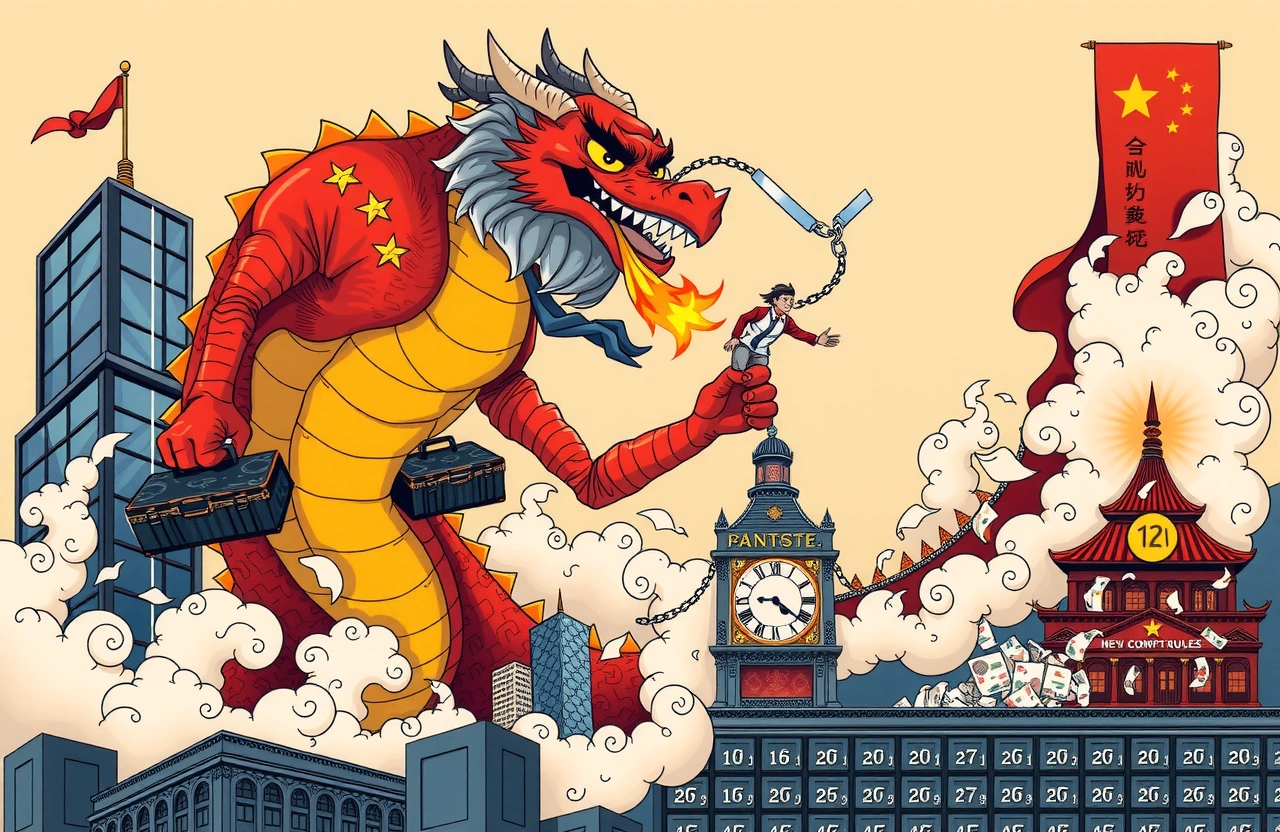Banking Executive Arrest Shakes Financial Sector
China’s banking industry faces renewed scrutiny as former China Merchants Bank Chongqing branch president Chen Lei (陈磊) was formally arrested on bribery charges. The case, transferred to Qinghai prosecutors after investigation by the Haidong Supervisory Commission, represents another high-profile enforcement action in China’s ongoing anti-corruption campaign. This development comes amid heightened regulatory focus on financial risk management following recent banking scandals.
Financial institutions nationwide are reviewing internal controls as the China Merchants Bank corruption case highlights persistent governance challenges. Industry analysts note this arrest follows a pattern of targeted enforcement against senior bankers, with over 120 financial executives disciplined in 2024 alone according to Central Commission for Discipline Inspection reports.
Case Details and Legal Proceedings
Charges and Investigation Timeline
Prosecutors allege Chen Lei committed both bribery and offering bribes during his tenure leading China Merchants Bank’s Chongqing operations. The Supreme People’s Procuratorate designated Qinghai’s Haidong People’s Procuratorate to handle the case – a common practice for sensitive investigations involving cross-jurisdictional elements. Key aspects include:
– Dual charges suggesting possible quid-pro-quo arrangements
– Case originated from disciplinary inspection before criminal referral
– Unusual interprovincial transfer from Chongqing to Qinghai authorities
Next Steps in Judicial Process
With arrest warrants issued, prosecutors now prepare formal indictment documents. Legal experts anticipate trial proceedings could begin within three months, though complex financial cases often take longer. Potential penalties under Chinese law include:
– 10+ years imprisonment for major bribery convictions
– Confiscation of illegal gains
– Lifetime industry bans for financial professionals
Institutional Impact on China Merchantsh2>
Immediate Response and Damage Control
China Merchants Bank (招商银行) issued internal compliance alerts within 48 hours of the arrest announcement. The bank’s Shanghai-listed shares showed minimal fluctuation, suggesting investor confidence in crisis management protocols. However, the China Merchants Bank corruption case presents significant reputational challenges:
– Third senior executive investigation in 18 months
– Potential client trust erosion in key western China market
– Increased regulatory inspections likely
Strengthening Internal Governance
The bank accelerated its “Clean Banking Initiative” with these specific enhancements:
– Mandatory leadership ethics training
– Rotation system for regional presidents
– AI-powered transaction monitoring
– Whistleblower reward program expansion
Broader Anti-Corruption Context
National Financial Discipline Campaign
Chen Lei’s arrest aligns with the Central Commission for Discipline Inspection’s 2024-2026 financial sector focus. Recent patterns show:
– 47% increase in banking disciplinary cases since 2022
– Priority targeting of loan approval and licensing functions
– Cross-provincial collaboration in complex investigations
Notable Precedent Cases
Several high-profile convictions demonstrate the campaign’s severity:
– China Development Bank ex-chairman Hu Huaibang (胡怀邦): Life sentence (2021)
– Everbright Group former chairman Tang Shuangning (唐双宁): Under investigation
– China CITIC Bank ex-president Sun Deqing (孙德顺): Death sentence commuted to life (2020)
Systemic Implications for Banking Operations
Compliance Cost Surge
Major banks report compliance expenditures increased 22% year-on-year in Q1 2025. New requirements include:
– Real-time expense tracking for executives
– Mandatory vendor integrity checks
– Quarterly ethics certification
Personnel and Cultural Shifts
The China Merchants Bank corruption case accelerates industry-wide changes:
– Reduced autonomy for branch presidents
– Younger leadership appointments (average age down 4.2 years)
– Performance metrics incorporating compliance outcomes
Regulatory Landscape Evolution
Legal Framework Updates
China Banking and Insurance Regulatory Commission (CBIRC) introduced stricter provisions in March 2025:
– Personal liability for team misconduct
– Expanded definition of bribery to include “relationship investments”
– Mandatory clawback provisions for ill-gotten bonuses
Enforcement Mechanism Changes
Regulators now employ:
– Dedicated financial investigation units
– Blockchain evidence preservation systems
– International cooperation for overseas asset tracing
Future Outlook and Strategic Recommendations
This China Merchants Bank corruption case signals enduring regulatory pressure. Financial institutions should prioritize:
– Implementing AI audit trails for decision processes
– Establishing independent compliance reporting lines
– Conducting cultural integrity assessments
Banking professionals must recognize that ethical standards now outweigh short-term performance metrics. The era of lax oversight has ended, replaced by sophisticated monitoring and severe consequences. Financial institutions demonstrating transparent governance will gain competitive advantage as regulatory scrutiny intensifies.
Monitor official CBIRC announcements for compliance updates and consider third-party governance assessments immediately. Proactive integrity measures now prevent catastrophic reputational damage later. The financial sector’s credibility depends on decisive action against corruption at all levels.



